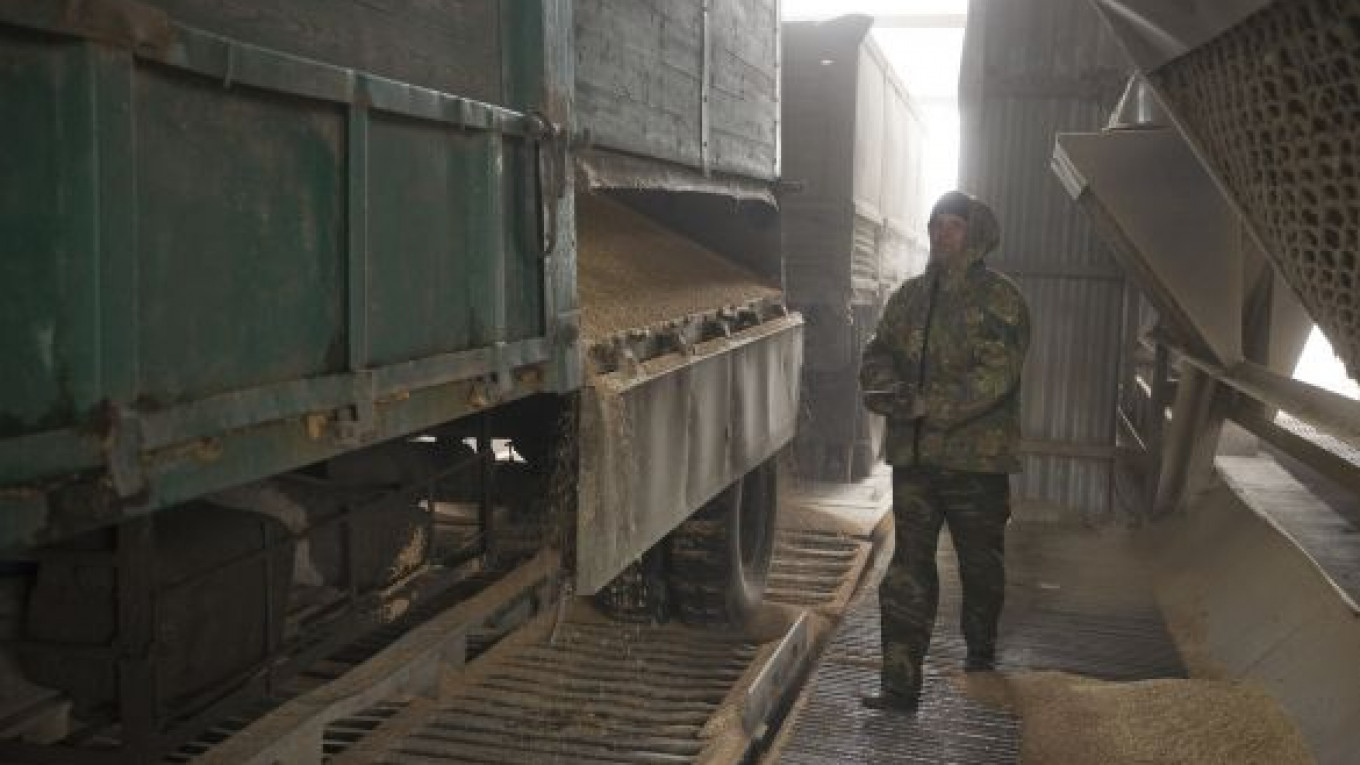Russia, the world's second-biggest wheat exporter before halting sales last year, is offering the largest discount on the grain in at least four years and targeting buyers in Southeast Asia to regain its share of the world market after lifting an export ban a month ago.
Russian wheat costs at least $40 a ton less than North American, French or Australian supplies, according to the Moscow-based Institute for Agricultural Market Studies researcher, also known as IKAR. That makes shipping to countries such as Malaysia viable after freight rates fell 44 percent in the past 12 months.
Russia's grain exports in July probably rose to 2 million tons, the highest monthly shipments on record, according to IKAR and Moscow-based agriculture researcher SovEcon. Exports to long-haul destinations such as Southeast Asia and Southern Africa may reach 1 million tons in the 12 months that end June 30, compared with the previous record of 650,000 tons in the 2009-10 season, according to IKAR.
"Russia is offering such a big discount that it allows the grain to travel these crazy distances," said IKAR director Dmitry Rylko. "Buying Russian wheat may be cheaper than Australian."
Aston FFI, a Lausanne, Switzerland-based unit of grain and oilseed producer and exporter Aston, is in talks to ship wheat to Vietnam and Malaysia and is "aware" of similar discussions by other Russian traders, said Peter Biermann, general manager of grain export operations. Aston also sold wheat to Kenya and Mozambique, he said. Aston says it accounts for 10 percent of Russian cereal exports.
"This year everything is different. Clearly it's the price of Russian wheat which is unbeatable at the moment, at least," Biermann said.
The distance between Russia's southern port of Novorossiisk, the main grain export hub, and Ho Chi Minh City in Vietnam is 6,900 nautical miles (7,940 miles), according to the E-ships.net web site.
Egypt has bought 720,000 tons of Russian grain since the ban was lifted, while Jordan and Tunisia also made purchases, according to tender results. Egypt had dropped Russia from its list of approved sources after Russia imposed its ban, according to Egypt's state wheat buyer.
Egypt agreed to buy 120,000 tons of Russian milling wheat for $249.47 to $250.40 a ton on July 26.
"They are aggressive," said Jack Watts, a senior analyst at the British Agriculture and Horticulture Development Board, an industry group funded by farmers. In the Egyptian tender "they were $35 cheaper than the nearest competitor, France."
The cost of hiring panamax ships, which typically carry grains as well as coal and iron ore, has slumped 44 percent in the past year to $11,995 a day, according to the Baltic Exchange in London.
The discount will gradually narrow as Russia runs out of its exportable surplus, and long-haul deliveries may wane in about two months, according to IKAR.
Competitors' prices are also falling. Milling wheat fell 16 percent in Paris trading in the past two months, partly amid concern that Russian exports would reduce demand for European and U.S. cargoes. Prices slid 4.1 percent in Chicago.
Russia's Agriculture Ministry estimates total grain exports in the 2011-12 marketing year will be 20 million tons as the harvest rebounds to as much as 90 million tons. The crop shrank to 60.9 million tons last year as the country suffered its worst drought in at least 50 years, prompting the government to ban exports to ensure domestic supplies.
Australia, the third-biggest wheat exporter in the 2010-11 season, will ship 18.5 million tons by the end of the Australian marketing year, according to the IGC.
In Southeast Asia, Russia has competed with Ukraine, which offers similar quality grain, rather than Australia, said Alexander Korbut, vice president of Russia's Grain Union, which represents the country's biggest producers and traders. Deliveries from Ukraine are slumping as traders lose money because of customs duties and delays in getting back value-added tax, he said.
Ukraine exported 3.39 million tons of wheat to Southeast Asia in the 2009-10 marketing year, before shipments slumped to 647,000 tons in the 12 months ended June 30 as the government set quotas on overseas shipments, according to Kiev-based researcher UkrAgroConsult.
"We still have a couple of months to sell at extra-long distances," IKAR's Rylko said. "It's impossible to sell grain so cheap for a long period of time."
A Message from The Moscow Times:
Dear readers,
We are facing unprecedented challenges. Russia's Prosecutor General's Office has designated The Moscow Times as an "undesirable" organization, criminalizing our work and putting our staff at risk of prosecution. This follows our earlier unjust labeling as a "foreign agent."
These actions are direct attempts to silence independent journalism in Russia. The authorities claim our work "discredits the decisions of the Russian leadership." We see things differently: we strive to provide accurate, unbiased reporting on Russia.
We, the journalists of The Moscow Times, refuse to be silenced. But to continue our work, we need your help.
Your support, no matter how small, makes a world of difference. If you can, please support us monthly starting from just $2. It's quick to set up, and every contribution makes a significant impact.
By supporting The Moscow Times, you're defending open, independent journalism in the face of repression. Thank you for standing with us.
Remind me later.






